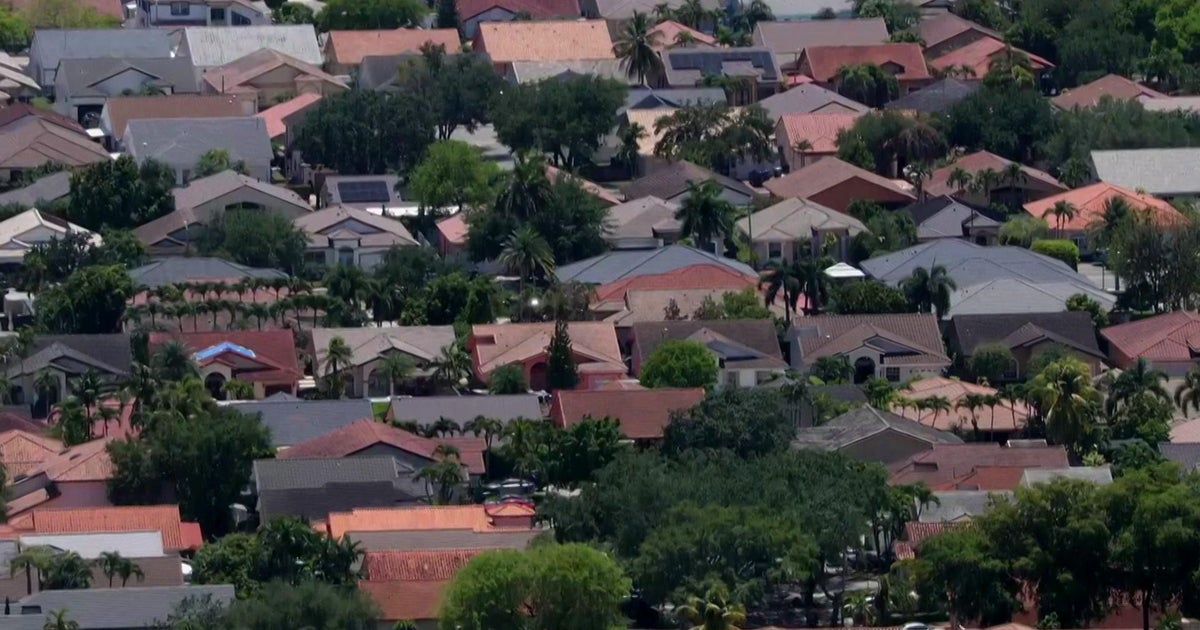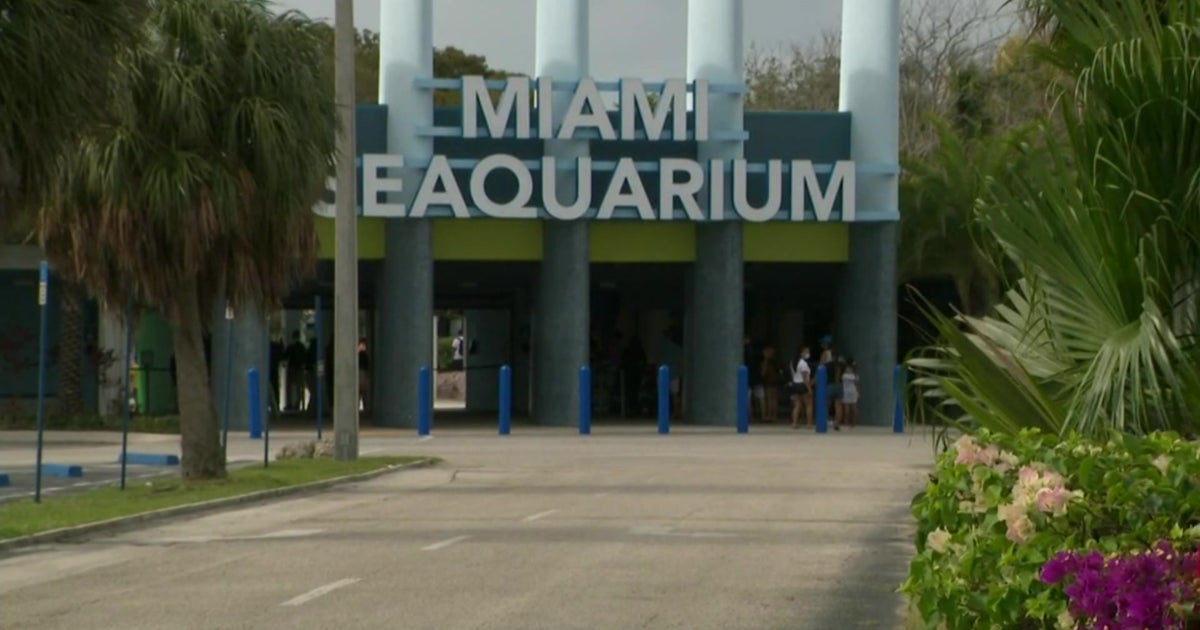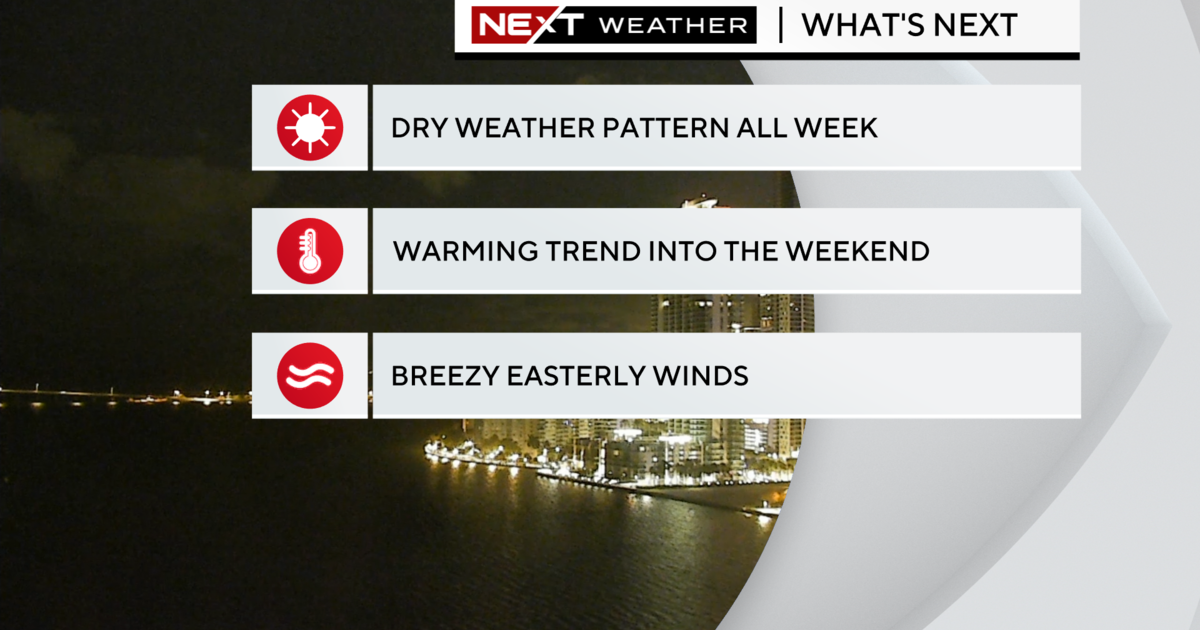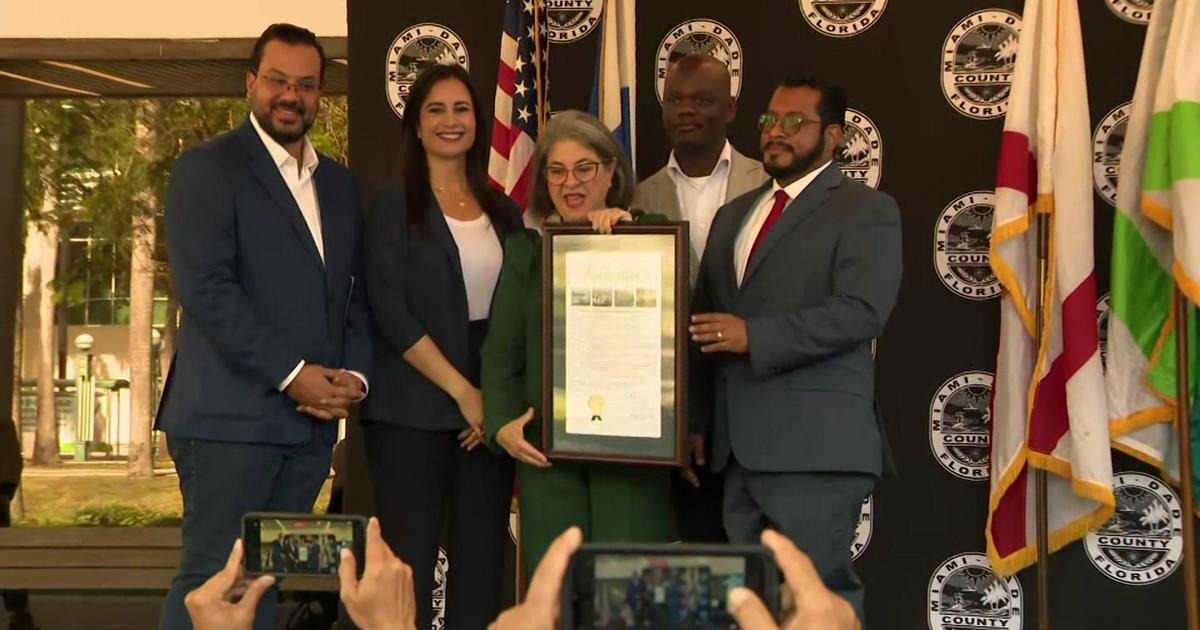Gas Prices Continue To Climb; $4 Gas Nearly A Reality For Many Americans
MIAMI (CBSMiami) - Gasoline prices continue to climb around the country and commuters in South Florida are feeling the pinch.
In Florida, the price for a gallon of regular gasoline is $2.74, according to the American Automobile Association.
In Miami-Dade and Broward Counties, the average price of regular gasoline is $2.77, and $2.84 in Palm Beach County, making it the most expensive in the state.
The cheapest gas in Florida could be found in Hamilton County for a mere $2.64 per gallon.
Just a month ago, the average price for the same gallon of gasoline was $2.46 in the Sunshine State, according to AAA.
A survey of more than 5,000 gas stations conducted by AAA shows that the average price for a gallon of regular gas is now $2.75, up 11% in the last month.
Though the pain is real, just be glad you don't live out west where gasoline prices are becoming a real sting for motorists.
The average price is already above $3 a gallon in six western states: California, Hawaii, Washington, Oregon, Nevada and Alaska.
Four-dollar gas is the average in a couple of California counties. Many others are within a few cents of that mark, including San Francisco, where the average price is $3.98. The statewide average in California is up 20 cents a gallon, or 5%, to $3.83 in just the last week.
The Midwest has also been hit by price spikes. The average price in Chicago has jumped 46 cents a gallon, or 16%, to $3.27 in the last month.
Unplanned refinery maintenance at several locations is responsible for the sudden, and uneven, increases across the nation, said Tom Kloza, head of energy analysis for the Oil Price Information Service. Western states are particularly vulnerable to supply disruptions because they have less refining capacity than other locations across the United States.
"The western half of the country hasn't added any refining capacity this century," said Kloza. "It's been a cluster of difficulties but not disasters hurting supplies, particularly out in the West."
Kloza said $4-a-gallon gas will be common in California and perhaps in some other western states in the coming weeks. But most of the country could start to see some relief in gas prices soon as refineries along the Gulf Coast start to come back online from scheduled maintenance in the coming weeks.
Crude oil prices have also played a role in the steady rise in gasoline prices, although gas prices increases have outpaced those in oil markets.
US crude oil is up 51% since December 24. American sanctions on Iran and Venezuela and fighting in Libya have combined with a cutback on oil production by OPEC nations to drive up the price of oil.
"Almost every day since the day after Christmas, both gas prices and oil prices have crept up," said Kloza.
AAA recommends you do this to save on gas:
(©2019 CBS Broadcasting Inc. All Rights Reserved. Cable News Network, Inc., a Time Warner Company, contributed to this report.)



